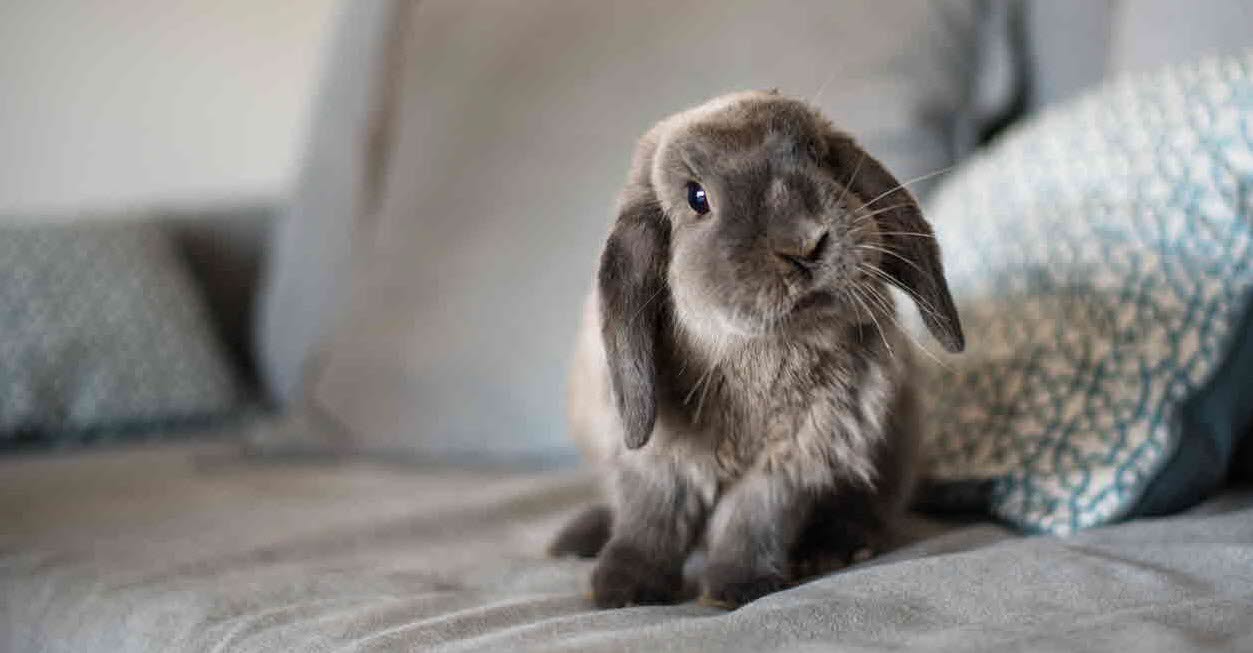
Rabbits make great pets. They are curious and social, and you can even train them to use a litter tray just like a cat! Although often viewed as ‘easy’ or ‘low maintenance’ pets, rabbits require very specific care to keep them healthy and happy.
A well cared for pet rabbit can live to 7-10 years of age, so it’s important you’re prepared before taking on a pet rabbit.
Read on to learn the basics of caring for your pet rabbit.
Housing
More than just a small hutch in the backyard, rabbits require adequate space to maintain good physical and mental health. Rabbits can be kept happily indoors, provided all of their needs are met and they have regular, safe outdoor access.
If kept exclusively outdoors, rabbits need large enclosures with plenty of shade and space to hide. Rabbits are susceptible to heat stroke, so in summer it’s recommended to bring them into a cool room of the house during the day to avoid the worst of the summer heat. Keeping rabbits in wire hutches with wire flooring can lead to painful foot problems, so alternative flooring or large amounts of time off this flooring is recommended.
Regardless of whether they live indoors or outdoors, the living space of rabbits should be cleaned daily to avoid waste buildup and to prevent any food items from spoiling. Rabbits instinctively do not like being picked up, so it is important to handle rabbits gently from a young age to establish trust and a bond. Rabbits should then be handled daily, ideally spending several hours a day inside with their family (you!).
Diet
Although fresh grass can play a role in their diet, rabbits also need access to plenty of good quality grass hay for both eating and nesting. Many of the grass varieties used in backyard turf are not ideal for rabbits, so supplementing their diet with good quality grass hay is very important. Commercial rabbit pellets and food are often not balanced and should either not be fed at all, or only fed in small amounts. Some brands such as Oxbow provide balanced, commercially available rabbit food. Vegetables like carrots can be provided in very small amounts as a treat, but good quality grass hay such as Timothy hay should make up more than 80% of your rabbit’s diet.
Sources of rabbits
Rabbits can be acquired through animal shelters, private breeders and pet shops. Always ensure the rabbit you buy is healthy before taking them home. They should be bright and alert, with clear eyes and no signs of diarrhea or a rough coat. Rabbits from animal shelters like the RSPCA have already been checked over by a veterinarian and come vaccinated and microchipped.
Veterinary care
All pets need access to regular veterinary care in order to remain healthy and happy. Rabbits are no different. Visit your usual veterinarian or a veterinarian working in the area of ‘exotic animals’ for more advice on keeping your rabbit healthy. Rabbits need parasite control and vaccines just like cats and dogs, so it’s important to take them regularly to the veterinarian.
For more information on general rabbit care and husbandry, visit this site by the Victorian government.
